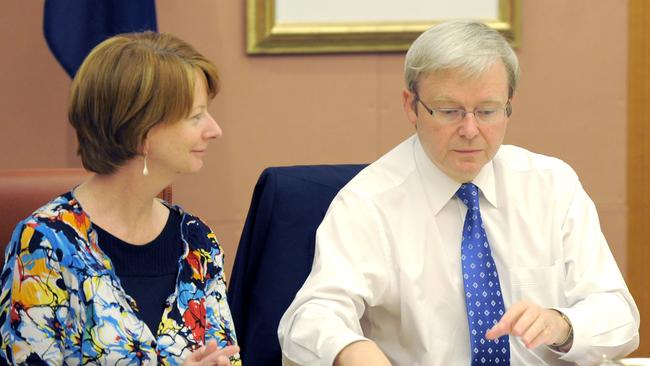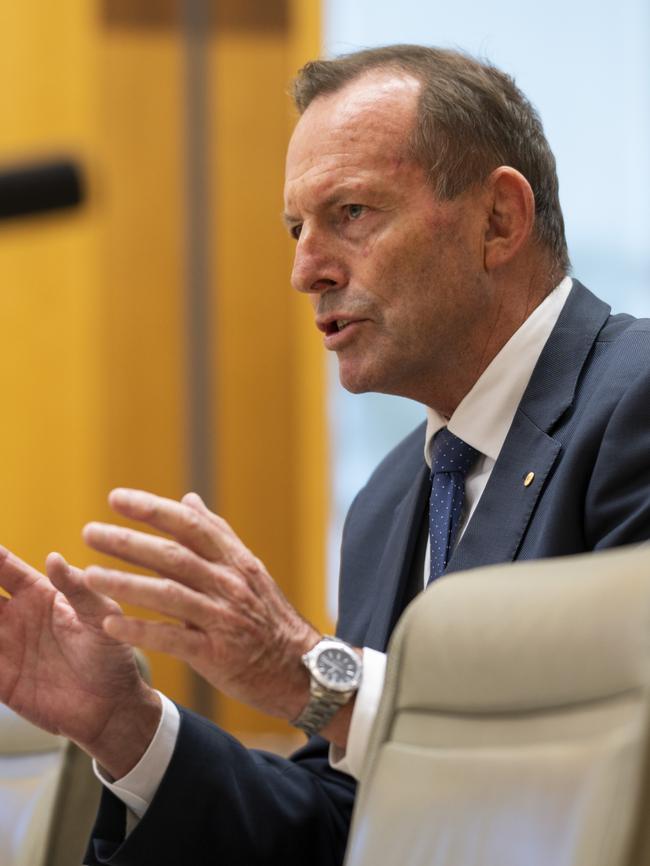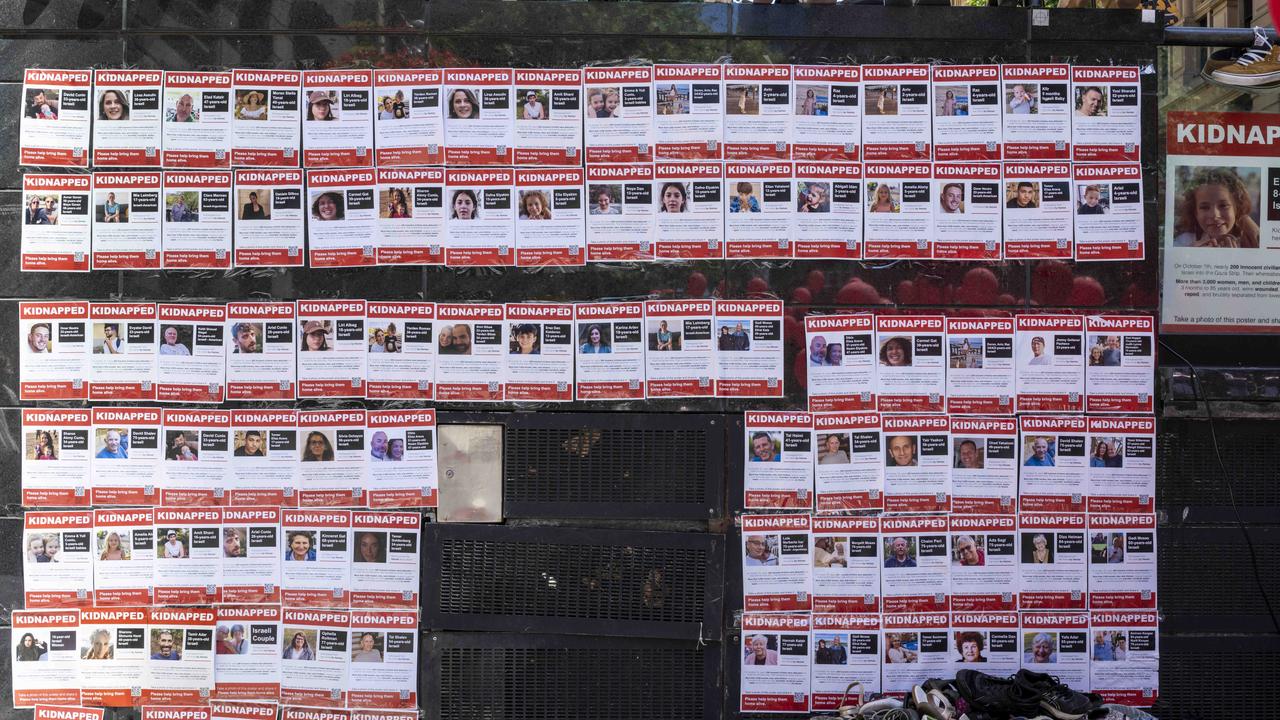
Among Anthony Albanese’s political goals, one has primacy – purging his government from the destructive instability that plagued and ruined the Rudd-Gillard government 2007-13 that he lived through at close quarters.
On June 23, 2010, with the Labor government gearing up for the political assassination of Kevin Rudd, Albanese told a gathering that evening: “If you do this you will destroy two Labor prime ministers.” His prediction was fulfilled – Rudd was deposed and Julia Gillard never recovered from her act of political violence.
Albanese argued on the night that Rudd’s destruction meant Labor could not campaign with credibility on its achievements, while Gillard would be permanently tarnished trying to justify what she had done. The situation became farcical when Gillard later admitted she had no strategic blueprint to revive the government. “I didn’t have a plan,” she said.
Former Labor Senate leader John Faulkner told the author: “It is the seminal moment of the six years in government. My view was that neither of them would survive it – and neither of them did survive it.”

Conspirators always believe in their mission – they are convinced they are saving a government when, usually, they are destroying a government.
Albanese said: “We had a great story to tell. But the obvious response from the voters was, ‘Well, if you’re so good, why did you depose your prime minister?’ ” The experience has led Albanese to a decisive conclusion – stability and unity are the necessary conditions for successful governance.
The formative experience of the current Albanese government ministers has been the Rudd-Gillard era. They admire its achievements but are determined to reject the suicidal mistakes – though Albanese’s appointment of Rudd as US ambassador should be recognised, so far, as a master stroke.
The upshot is that Albanese has now been Prime Minister longer than Tony Abbott – and there is no disturbance in the ranks. If he wins the next election Albanese will be the first Prime Minister since John Howard in 2004 to have been re-elected.
That will constitute a possible decisive break in two decades of instability that has been pivotal to the ruin of governments from both sides. The Albanese government’s policy ability is in question on several fronts, notably the economy, immigration and climate change.
But it is hanging together. Labor, so far, displays a resolution suggesting it will not succumb to the disunity and destabilisation that undid previous Labor and Coalition governments.
It is no surprise this week when Albanese announced his ministry reshuffle – the first since winning office – that his message was stability, not revival or re-start. Indeed, he claimed Labor had delivered “the most stable period, might I say, of government, certainly in living memory if not forever.”

It was a revealing remark. It reminds of what drives Albanese – governing stability, Labor orthodoxy, electoral pragmatism. As he plugged the flaws in his team and moved Andrew Giles and Clare O’Neil, Albanese criticised nobody and kept the factions pacified. Indeed his critics, bizarrely, seemed upset he didn’t censure his colleagues.
Contrary to what you have read, the reshuffle was an astute exercise in political terms – putting Tony Burke into Home Affairs and Immigration to neutralise the damage (with Burke, by the way, having an impressive record in cutting boat arrivals when he had the portfolio in 2013); giving O’Neil the task of better selling a housing policy where Labor is losing out to the Greens; and putting Pat Conroy into cabinet as Minister for Defence Industry and Capability, given the huge tasks ahead in defence building and procurement.
The challenge facing Albanese lies in policy, but the politics remains critical. After all, it was the politics that destroyed the Morrison government. As a Prime Minister, Albanese doesn’t rush in. The criticism of Albanese is that he reacts too slowly, lets things run for too long and isn’t sufficiently proactive. Unsurprisingly, that’s the opposite of Rudd.
Rudd had the near perfect CV: high IQ, incredible work ethic, super rational, comfort with high policy and, when he wanted, immense charm. But Albanese saw at close quarters what went wrong – Rudd alienated too many colleagues, centralised power in himself, did too many things at once, failed to prioritise and misjudged the “human factor”.
Albanese as a Prime Minister is far more orthodox than Rudd. He has corrected for any Ruddisms that might provoke an internal strike. Being orthodox Labor, he backs trade union power; being orthodox progressive, he backed the voice; listening to the electorate, he has ditched any further referendum agenda (so forget the republic); by prioritising ministerial stability, he has made one reshuffle this term before the election; and as an agent of stability he will run full term with the election next year.

Short of an unforeseen or aberrant event, Albanese won’t call an election this year. Indeed, he keeps sending signals along these lines and has now begun to mock the constant media reports and speculation about an early election he has no intention of calling. If reduced to minority government there is one certainty: he won’t enter an alliance with the Greens, another corrective lesson from the Rudd-Gillard period.
It is unsurprising Albanese moved ASIO back to the Attorney-General’s portfolio from home affairs following Labor’s earlier removal of the Australian Federal Police to the A-G’s portfolio. The Coalition has attacked this decision on national security grounds but the creation of the home affairs portfolio has been contentious.
When Scott Morrison initially pushed for it, Abbott as prime minister refused him. Malcolm Turnbull created the ministry for Peter Dutton over a litany of protests from the then heads of ASIO and the AFP, Julie Bishop as foreign minister and George Brandis as A-G. Many retired bureaucrats from the national security system believe the benefits have been marginal or negative. If the Coalition wants to re-create the full Home Affairs ministry it will need to prove its case – that argument can’t be accepted as a given.
As for Albanese’s cabinet, it is 23 ministers strong – madness. It cannot function as a proper decision-making and debating body. The Whitlam cabinet, long recognised as unworkable, was only 27 ministers (and Gough told me on many occasions it was dysfunctional). With cabinets, prime ministers tend to elevate politics over efficiency. The inevitable result is that the real decisions are taken in cabinet committees or by the leadership team.

The astonishing list of successive Labor leaders at elections this century testifies to the sheer instability that has demanded to be corrected: in 2001 Kim Beazley, in 2004 Mark Latham, in 2007 Rudd, in 2010 Gillard, in 2013 Rudd, in 2016 and 2019 Bill Shorten, and in 2022 and assured for 2025 Albanese.
Albanese’s history is notably revealing. In 2006, when Rudd challenged Beazley for the ALP leadership, Albanese campaigned for stability – he backed Beazley as leader and helped to organise the numbers for him. After Rudd prevailed, Albanese backed Rudd, again as the leader. In the end in 2013, when he felt there was no option but to replace Gillard as PM, Albanese told her and offered his resignation as leader of the house, which Gillard refused.
On becoming ALP leader in 2019, Albanese promoted stability and pragmatism. He pulled the party back to the centre, ditched the contentious 2019 tax increases and backed a modest reform agenda to ensure Morrison remained the issue for the voting public.
But at the next election Albanese will be the issue. The great challenge will be his policy record, notably on the economy and cost of living. How will his leadership be viewed? Will stability and pragmatism be enough or will the voters be indifferent to a leader who has not captured their imagination?
More Coverage
Read related topics:Anthony Albanese






